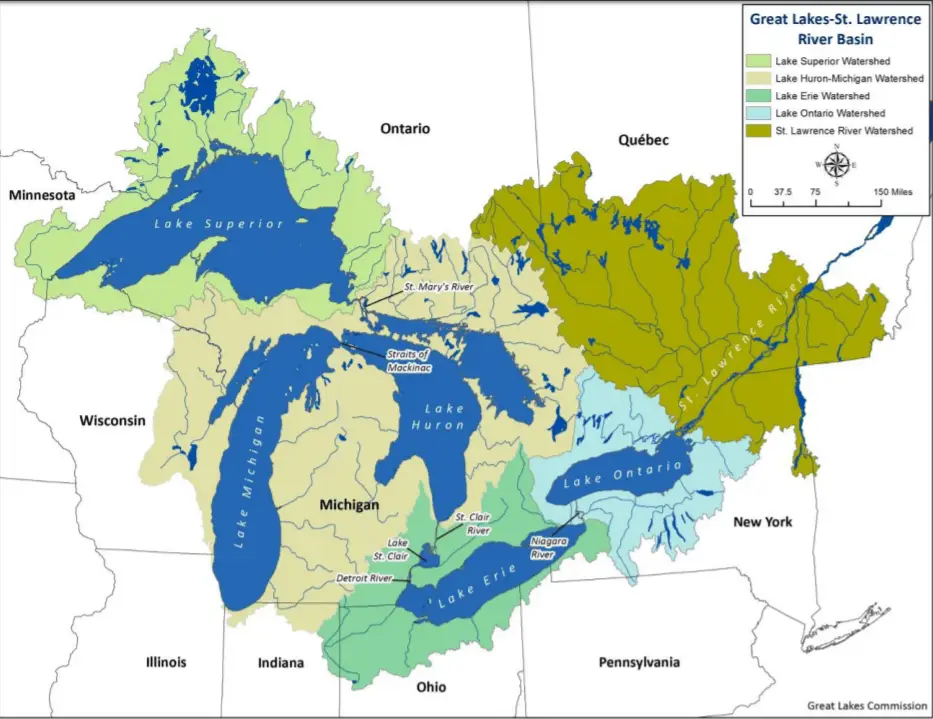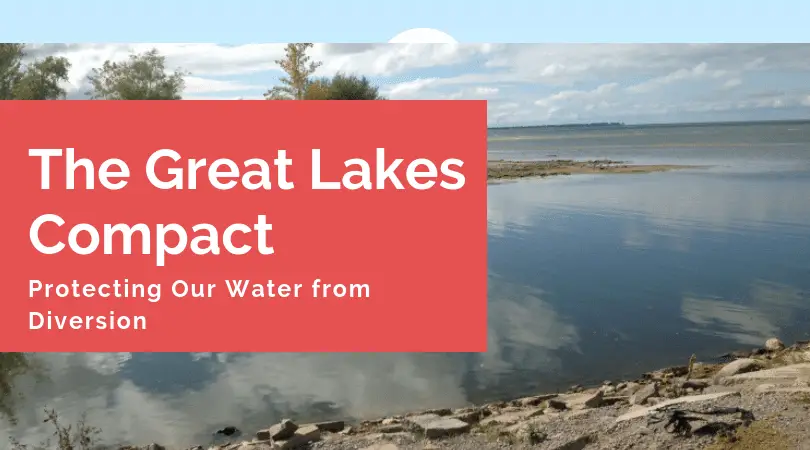The Great Lakes Compact is a 10-year old formal agreement between the Great Lakes states which details how the states will work together to manage and protect the Great Lakes – St. Lawrence River Basin.
The Compact was ratified in 2008 by eight states and is federal law. It provides a framework for states to enact programs protecting waters of the Great Lakes basin. In general, diversions of water outside the basin are banned, but exceptions can be made for nearby communities when certain standards are met.
Governors Council
The compact is overseen by a council made up of governors of the eight Great Lake states. The council currently has five Republican governors and three Democratic governors. Starting in January 2019, many of the current governors on the council will be replaced. This will shift the council to six Democrats and two Republicans.
Proposed rules changes will make it easier for petitioners to ask for a water diversion and alter some of the provisions in the current rules that outline the need for public comment.

Mayors and Tribes Push-back
In an interesting twist, First Nation tribes and Great Lakes mayors have come together. They are asking for stronger rules to project Great Lakes Water. Cameron Welch, policy analyst for Canada’s Anishinabek Nation. Noted, “We must recognize that First Nations and tribes are not simply stakeholders but also have jurisdiction over the lakes,” he said. “Certainly, the Anishinabek position is that we never ceded our rights to lake beds and waters through treaty. Therefore, we have jurisdiction that remains with us.” The Anishinabek Nation, a political advocacy group representing 40 First Nations communities in Ontario.
Former Racine, Wisconsin Mayor John Dickert wants to defer the changes until next year. That’s when the governor’s council will become a Democratic majority. “The lakes recharge at one percent per year,” says Dickert. “So if these withdrawals continue and they end up in court and you start pulling out more than one percent and utilizing one percent per year, that’s where the real catastrophe comes in.”
Sources
- Michigan Public Radio
- Wisconsin Public Radio News
- Great Lakes Now Site
Related
- Will El Niño Drop Great Lakes Water Levels?
- Foreign Companies Are Stealing Great Lakes Water
- Great Lakes Water Use – Lies and Half Truths




